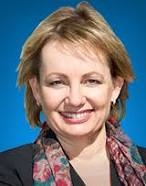The Turnbull Government is committed to working with health professionals and patients to build a Medicare Benefits Schedule that is based on contemporary clinical practice, said Minister for Health and minister for Aged Care Ms Susan Ley.
“This is evidenced by our clinician-led Taskforce reviewing all 5700 items on the MBS, many of which have not been updated or assessed in decades, or at all.Recent public consultation undertaken as part of the MBS Taskforce’s work demonstrates the important support amongst health professionals for this clinical process, with over 93 per cent surveyed agreeing parts of the MBS were out-of-date and required review.
This intensive work is being undertaking in stages over a 2 year period, with the MBS Taskforce’s first round of advice now available for public consultation until 8 February 2015 here: http://www.health.gov.au/internet/main/publishing.nsf/Content/MBSReviewTaskforce.
This first stage of work has provided recommendations about the immediate removal of lower-volume MBS items in some specific specialities where there is clinical consensus that they are ‘obsolete’ and no longer represent clinical best-practice. These are also items that clinical experts deem will not have adverse impacts on a patient’s access to health services if removed.
Reasons range from more-clinically appropriate and/or efficient technologies and procedures already listed on the MBS through to patient safety, unnecessary doubling-up of item claims and decreasing usage.
For example, in diagnostic imaging, invasive tests to diagnose blood clots in the lower leg or gall bladder problems have now been replaced by non-invasive ultrasound technology.
There are 23 MBS items in total recommended for removal in this first stage of work from a handful of specialities, including:
- Diagnostic imaging – 7 items
- Ear, nose, and throat surgery – 9 items
- Gastroenterology – 5 items
- Obstetrics – 1 item
- Thoracic medicine – 1 item
These 23 MBS items were used a combined total of 52,500 times in 2014-15, worth $6.8 million in Medicare benefits paid.
As part of our commitment to consultation throughout this process, the Taskforce will now seek further views on the 23 MBS items they have recommended for removal before final decisions are made.
It is important to understand that this is not by any means a comprehensive or complete list of final findings about the final makeup of the MBS.
Never has such a comprehensive review of all 5700 items on the MBS been undertaken since Medicare’s inception in the 1980s and many more items will require more in-depth, complex evaluation.
It is also important to remember further advice from the Taskforce will not just focus on the removal of items from the MBS altogether, but also maintaining clinically-relevant MBS items, the addition of new MBS items where appropriate, and more intricate changes around the rules governing the eligibility and use of an MBS item for a particular patient cohort.
The work of the MBS Review is part of the Turnbull Government’s commitment to an integrated approach to health policy development and complements our concurrent review of primary health care and policy work to improve private health insurance for consumers, as well as our bold plans to transform mental health service delivery.
My number one priority for this MBS review has always been, and remains, building a healthier Medicare for Australian patients, health professionals and taxpayers and I am determined to deliver it.










Leave a Reply